|
|
|
|
|
|
|
|
|
No Arctic-related science events are announced today.
|
Media
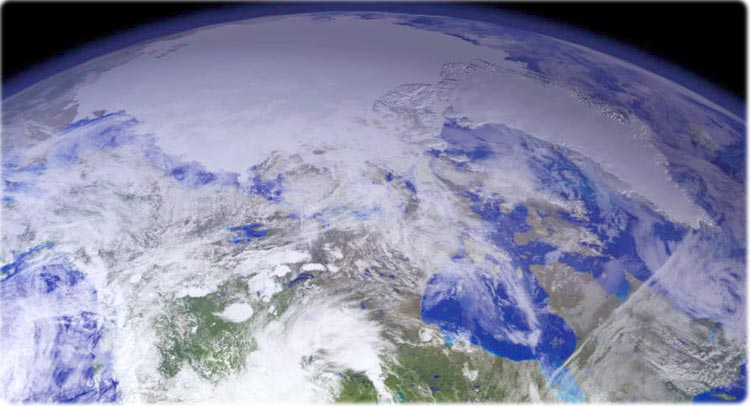 Special Issue to Highlight Impact of Changes in Arctic Climate. Special Issue to Highlight Impact of Changes in Arctic Climate. There's controversy in climate change research--not whether climate change exists, but how the evidence is gathered and used to inform predictions. To help bring convergence to the field and potentially accelerate action, a special issue of the Advances in Atmospheric Sciences is highlighting recent scientific work. "Our understanding of Arctic-midlatitude linkages is still at a pre-consensus stage," said Thomas Jung, a professor of climate dynamics at the Alfred Wegener Institute Helmholtz Centre for Polar and Marine Research in Bremerhaven, Germany. He also co-authored the issue's preface as a guest editor. "...it is important, therefore, to bring together the latest research results." EurekAlert!
University's Circumpolar Lab Explores Arctic. As temperatures drop, University researchers continue studying the wintry climes of the North at the University's renowned Circumpolar Laboratory. The lab is tucked away in the Haffenreffer Museum of Anthropology's Collections Research Center in Bristol. Founded in 1973 by Douglas Anderson, the lab was created as a part of the University's program in anthropology. It is the "federal repository for important ethnographic and archaeological collections primarily from northwestern Alaska," according to its website. The Brown Daily Herald
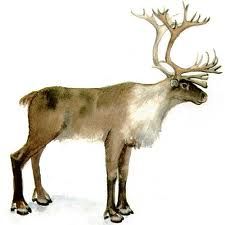 How Will Climate Change Affect Arctic Caribou and Reindeer? How Will Climate Change Affect Arctic Caribou and Reindeer? This spring, I spent close to two weeks flying over central Nunavut, peering out the window of a small plane at the rolling tundra below, looking for and counting caribou to monitor their numbers. The Qamanirjuaq barren-ground herd were arriving on their tundra calving grounds to give birth after migrating from winter ranges in the boreal forest. At times caribou dotted the landscape all the way to the horizon. Nunatsiaq Online
GREENLAND: Ice Sheet Pools Might be Good News for Sea-level Rise. New research on Greenland's melting ice sheet suggests sea levels might not rise as quickly as some projections predicted. Greenland loses about 270 billion tons of ice each year as the planet warms. But surface variations on the ice create areas where meltwater can pool and porous holes can develop. Instead of flowing immediately into the ocean, some of the meltwater stays put. E&E News In Norway, Fighting the Culling of Reindeer With a Macabre Display. On a winter-wonderland Wednesday in Oslo, as ice skaters held hands and rosy-cheeked toddlers lined up for rides on a merry-go-round and Ferris wheel, hundreds of bullet-ridden reindeer skulls were strung up yards away in a macabre curtain outside the Stortinget, Norway's Parliament. The reindeer heads had been installed as a protest in a Supreme Court case brought by Jovsset Ante Sara, 25, an indigenous Sami herder who is challenging the Norwegian government's reindeer reduction policy. Mr. Sara has won two court victories, but each time the government has appealed. New York Times The Alaska Center for Energy and Power (UAF-ACEP), Institute of Social and Economic Research (UAA-ISER), and Lawrence Berkeley National Laboratory (Berkeley Lab) announce a major upgrade of the Alaska Energy Data Gateway. "The Gateway", which was first released in 2013, provides users the ability to search for community-level capacity data to undertake new energy projects and provides Alaska communities and project developers data to make informed decisions prior to undertaking rural energy projects.Visit the Gateway at: https://akenergygateway.alaska.edu.
|
|
Future Events
Fall 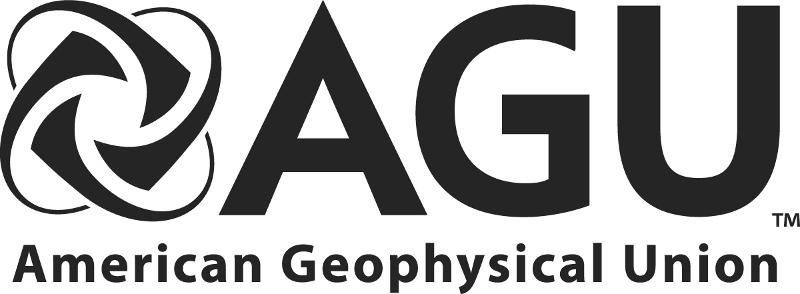 Meeting is the largest and preeminent Earth and space science meeting in the world. The 2017 Fall Meeting will take place in New Orleans, Louisiana, offering attendees the chance to discover a new location that features world renowned cuisine, music, arts and culture, and provides access to vital scientific ecosystems. Fall Meeting will offer a unique mix of more than 20,000 oral and poster presentations, a broad range of keynote lectures, various types of formal and informal networking and career advancement opportunities, scientific field trips around New Orleans, and an exhibit hall packed with hundreds of exhibitors.
ArcticNet invites the global Arctic research community to Arctic Change 2017! This conference will bring together Arctic researchers and students with Inuit, Northerners and government, industry and NGO stakeholders. The world's foremost Arctic scientists will present research findings and discuss impacts of climate change and modernization. With 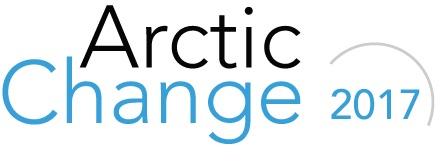 over 1500 participants expected, Arctic Change 2017 will be one of the largest trans-sectoral international Arctic research conferences held in Canada. We welcome students and early career researchers to participate in "Student Day" at the start of the Conference. See an excerpt from last year: ArcticNet ASM2016. over 1500 participants expected, Arctic Change 2017 will be one of the largest trans-sectoral international Arctic research conferences held in Canada. We welcome students and early career researchers to participate in "Student Day" at the start of the Conference. See an excerpt from last year: ArcticNet ASM2016.
The Arctic Domain: From Economics to National Security, December 12, 2017 (St. Mary's Island, MD USA). This unique forum addresses issues central to U.S. defense and foreign affairs. In this day-long forum, panelists representing policymakers, academics, and government officials, will discuss topics such as U.S. Arctic defense strategy, international frameworks for cooperation, climate change, responsible resource extraction, energy development, tourism, territorial claims and defense issues. This event is hosted by the Patuxent Defense Forum.
Actionable Science: Arctic Research Addressing Stakeholder Needs // AGU Town Hall Hosted by IARPC and SEARCH, December 14, 2017 (New Orleans, LA USA). The Interagency Arctic Research Committee (IARPC) and the Study of Environmental Arctic Change (SEARCH) recognize the importance of science that is actionable by stakeholders. This town hall will share their evolving approaches and engage the community in discussions of best practices and new approaches. Examples of Arctic research addressing stakeholder needs will serve as test cases to examine: how are needs identified; how are questions appropriately framed to meet stakeholder needs; and what promotes and constrains research addressing those needs? The executive directors of SEARCH and IARPC will moderate discussion among SEARCH and IARPC teams and the broader community.
ISAR-5 Fifth International Symposium on Arctic Research, January 15-18, 2018 (Tokyo, Japan). The fifth ISAR has been planned at the recommendation of the science steering committee of ISAR-4, which was held in Toyama, Japan in April 2015. The fifth ISAR will be devoted to discussions on environmental changes in the Arctic and their regional and global implications, to seek additional international scientific collaboration in this area by gathering, synthesizing and sharing information related to these changes occurring in the Arctic. Special emphasis will be placed on the fields of the social sciences and humanities, which were not included in the previous ISARs. ISAR-5 will consist of general sessions and special sessions. The general sessions will address the following topics: atmosphere; ocean and sea ice; rivers, lakes, permafrost, and snow cover; ice sheets, glaciers, and ice cores; terrestrial ecosystems; marine ecosystems; geospace; policies and economy; and social and cultural dimensions. Special sessions will be solicited on cross-cutting themes.
NSF Principles for the Conduct of Research in the Arctic, Comments due January 16, 2018. The Interagency Arctic Research Policy Committee (IARPC), is seeking comments on how best to revise and strengthen the Principles for the Conduct of Research in the Arctic. A Federal Register Notice has been published to solicit community input. Since 1990, community engagement and Arctic research have advanced both in theory and in practice, necessitating a review and update of the current Principles. The Principles Revision Working Group of IARPC is seeking input from all stakeholders to revise and update the Principles. The update will focus on communicating clearly the Principles for community engagement by Arctic researchers and including language that describes partnerships and collaborations with Indigenous scholars, enhanced community-based observations, fostering community-based participatory research, and the integral contributions of Indigenous knowledge in the co-production and dissemination of knowledge. Input is also sought on enhancing the dissemination and implementation of the Principles. Comments can be emailed to iarpcprinciples@nsf.gov.
2018 Arctic Frontiers: Connecting the Arctic, January 21-26, 2018 (Tromso, Norway). Arctic Frontiers is an international arena on sustainable development in the Arctic. The conference addresses the management of opportunities and challenges to achieve viable economic growth with societal and environmental sustainability. Arctic Frontiers brings academia, government and business together to create a firmer foundation for decision-making and sustainable economic development in the Arctic. Join the Arctic Frontiers conference preparing the new Arctic future. The conference takes place the fourth week of January in the Norwegian city of Tromsø, known as the Gateway to the Arctic.
Alaska Marine Science Symposium, January 22-26, 2018 (Anchorage, Alaska.) The Alaska Marine Science Symposium (AMSS) is Alaska's premier marine research conference. For over 20 years, it has brought together scientists, educators, resource managers, students, and the public to discuss marine research conducted in Alaskan waters. Over 700 people attend this 4-day long conference held annually in January. Each day of the conference highlights Alaskan marine ecosystems: Arctic (Tuesday), Bering Sea & Aleutian Islands (Wednesday), and the Gulf of Alaska (Thursday). Research topics discussed range from ocean physics, fishes and invertebrates, seabirds, marine mammals, to local traditional knowledge. Website for 2018 meeting is here.
Alaska Forum on the Environment, February 12-16, 2018 (Anchorage, Alaska)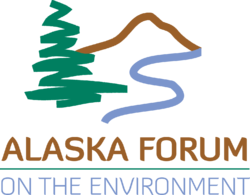 . AFE is a statewide gathering of environmental professionals from government agencies, non-profit and for-profit businesses, community leaders, Alaskan youth, conservationists, biologists and community elders. The diversity of attendees sets this conference apart from any other. The 2018 event will be our 20th year providing a strong educational foundation for all Alaskans and a unique opportunity to interact with others on environmental issues and challenges. . AFE is a statewide gathering of environmental professionals from government agencies, non-profit and for-profit businesses, community leaders, Alaskan youth, conservationists, biologists and community elders. The diversity of attendees sets this conference apart from any other. The 2018 event will be our 20th year providing a strong educational foundation for all Alaskans and a unique opportunity to interact with others on environmental issues and challenges.
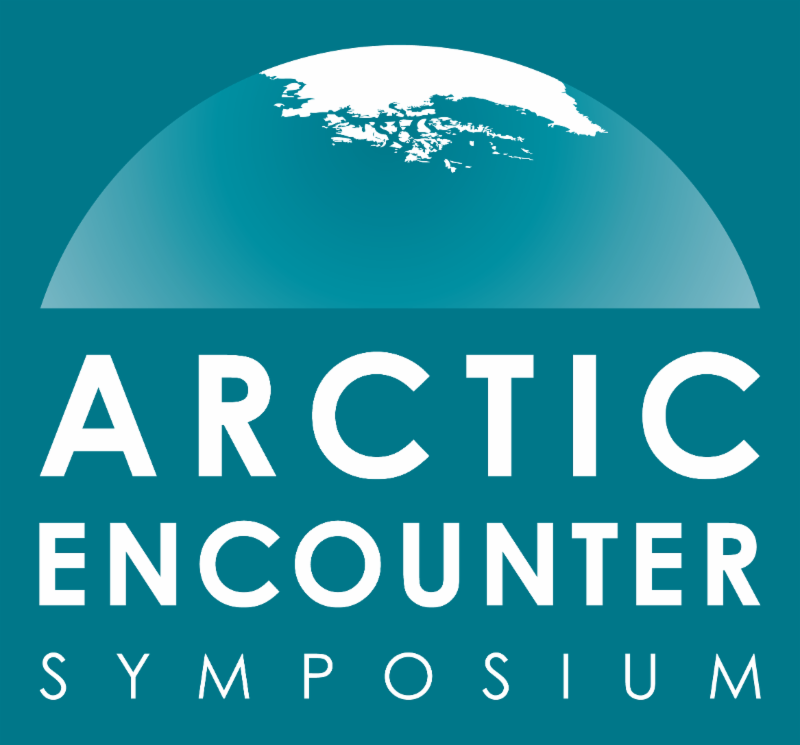 ** New this week ** 5th Annual Arctic Encounter Symposium (AES), April 19-20, 2018 (Seattle, WA, USA) ** New this week ** 5th Annual Arctic Encounter Symposium (AES), April 19-20, 2018 (Seattle, WA, USA) - The Arctic Encounter, the largest annual Arctic policy conference in the U.S., will convene policymakers, industry leaders, scientists, Arctic artists and musical performers, and other stakeholders to debate and discuss emerging Arctic challenges and opportunities including policy, innovation, security, and development. The mission of AES is to raise awareness, engage challenges, and develop solutions for the future of the Arctic region and the people who live there. The 5th annual AES will take place in downtown Seattle at the Bell Harbor International Conference Center on Pier 66.
2018 North by North Festival, April 23-29, 2018 (Anchorage, Alaska USA). The North by North Festival captures the spirit of Alaska and the Arctic - to address our challenges and opportunities with Northern innovation and resilience, to build on a rich history and to ensure a future full of promise. The Festival is for the North, and organized by Northerners, with goals of sustainability, livability and growth. The Festival brings innovators from across Alaska, the nation and other Arctic regions to collaborate and address local and circumpolar challenges. Through knowledge, governance, business, design, film, music, food, literature and art, we celebrate the North.
The Effects of Climate Change on the World's Oceans, June 4-8, 2018 (Washington, DC USA). The 4th International Symposium will bring together experts from around the world to better understand climate impacts on ocean ecosystems - and how to respond. The event is hosted by a variety of groups including International Council for the Exploration of the Sea (ICES), N. Pacific Marine Science Organization (PICES), Intergovernmental Oceanographic Commission of UNESCO (IOC), and Food and Agriculture Organization of the United Nations (FAO).
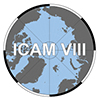
International Conference on Arctic Margins (ICAM) VIII, June 11-14, 2
The international Conference on Arctic Margins (ICAM) is a forum for earth scientists who study the Arctic. It was founded to help understand the little known Arctic geology and to foster cooperation and collaboration among Arctic researchers. There have been 7 meetings since its inception in 1991. See here for more information.
 POLAR 2018, June 15-27, 2018 (Davos, Switzerland). POLAR2018 is a joint event from the Scientific Committee on Antarctic Research (SCAR) and the International Arctic Science Committee (IASC). The SCAR meetings, the ASSW and the Open Science Conference will be hosted by the Swiss Federal Institute for Forest, Snow and Landscape Research WSL under the patronage of the Swiss Committee on Polar and High Altitude Research. The WSL Institute for Snow and Avalanche Research SLF is organizing POLAR2018. POLAR 2018, June 15-27, 2018 (Davos, Switzerland). POLAR2018 is a joint event from the Scientific Committee on Antarctic Research (SCAR) and the International Arctic Science Committee (IASC). The SCAR meetings, the ASSW and the Open Science Conference will be hosted by the Swiss Federal Institute for Forest, Snow and Landscape Research WSL under the patronage of the Swiss Committee on Polar and High Altitude Research. The WSL Institute for Snow and Avalanche Research SLF is organizing POLAR2018.
Arctic Observing Summit 2018, June 24-26, 2018 (Davos, Switzerland). The Arctic Observing Summit (AOS) is a high-level biennial summit that provides a platform to address urgent and broadly recognized needs of Arctic observing across all components of the Arctic system. AOS 2018 will be held in Davos, Switzerland ( June 24-26) and will focus on pressing issues in the implementation and support of sustained observations that can be addressed through a business-case lens. To that end, short submissions are requested that address any and all aspects of the overarching theme and sub-themes. Additional information can be found here.
17th International Congress of Circumpolar Health (ICCH17), August 12-15, 2018 (Copenhagen, Denmark). The ICCH congresses are held every third year in different locations in the circumpolar area and represent the largest scientific meetings worldwide on circumpolar health. The ICCH congresses serve as the primary source of information exchange and scholarly communication in issues relating to circumpolar health. More than 750 participants generally register and participate in each Congress, and more than 400 scientific papers or posters are usually presented.
The second Arctic Biodiversity Congress is hosted by the Conservation of Arctic Flora and Fauna (CAFF), the biodiversity working group of the Arctic Council, and the Ministry of the Environment, Finland. The second Arctic Biodiversity Congress will build on the success of the first Congress, held in 2014 in Trondheim, Norway, and will bring together scientists, policymakers government officials, Indigenous representatives, Traditional Knowledge holders, industry, non-governmental organizations, and others to promote the conservation and sustainable use of Arctic biodiversity.
|
|

  
4350 N. Fairfax Drive, Suite 510
Arlington, VA 22203, USA
External links in this publication, and on the USARC's World Wide Web site ( www.arctic.gov) do not constitute endorsement by the US Arctic Research Commission of external Web sites or the information, products or services contained therein. For other than authorized activities, the USARC does not exercise any editorial control over the information you may find at these locations. These links are provided consistent with the stated purpose of this newsletter and the USARC Web site.
|
|
|
|
|
|
|
|
|
 Special Issue to Highlight Impact of Changes in Arctic Climate. There's controversy in climate change research--not whether climate change exists, but how the evidence is gathered and used to inform predictions. To help bring convergence to the field and potentially accelerate action, a special issue of the Advances in Atmospheric Sciences is highlighting recent scientific work. "Our understanding of Arctic-midlatitude linkages is still at a pre-consensus stage," said Thomas Jung, a professor of climate dynamics at the Alfred Wegener Institute Helmholtz Centre for Polar and Marine Research in Bremerhaven, Germany. He also co-authored the issue's preface as a guest editor. "...it is important, therefore, to bring together the latest research results." EurekAlert!
Special Issue to Highlight Impact of Changes in Arctic Climate. There's controversy in climate change research--not whether climate change exists, but how the evidence is gathered and used to inform predictions. To help bring convergence to the field and potentially accelerate action, a special issue of the Advances in Atmospheric Sciences is highlighting recent scientific work. "Our understanding of Arctic-midlatitude linkages is still at a pre-consensus stage," said Thomas Jung, a professor of climate dynamics at the Alfred Wegener Institute Helmholtz Centre for Polar and Marine Research in Bremerhaven, Germany. He also co-authored the issue's preface as a guest editor. "...it is important, therefore, to bring together the latest research results." EurekAlert! How Will Climate Change Affect Arctic Caribou and Reindeer? This spring, I spent close to two weeks flying over central Nunavut, peering out the window of a small plane at the rolling tundra below, looking for and counting caribou to monitor their numbers. The Qamanirjuaq barren-ground herd were arriving on their tundra calving grounds to give birth after migrating from winter ranges in the boreal forest. At times caribou dotted the landscape all the way to the horizon. Nunatsiaq Online
How Will Climate Change Affect Arctic Caribou and Reindeer? This spring, I spent close to two weeks flying over central Nunavut, peering out the window of a small plane at the rolling tundra below, looking for and counting caribou to monitor their numbers. The Qamanirjuaq barren-ground herd were arriving on their tundra calving grounds to give birth after migrating from winter ranges in the boreal forest. At times caribou dotted the landscape all the way to the horizon. Nunatsiaq Online
 Meeting is the largest and preeminent Earth and space science meeting in the world. The 2017 Fall Meeting will take place in New Orleans, Louisiana, offering attendees the chance to discover a new location that features world renowned cuisine, music, arts and culture, and provides access to vital scientific ecosystems. Fall Meeting will offer a unique mix of more than 20,000 oral and poster presentations, a broad range of keynote lectures, various types of formal and informal networking and career advancement opportunities, scientific field trips around New Orleans, and an exhibit hall packed with hundreds of exhibitors.
Meeting is the largest and preeminent Earth and space science meeting in the world. The 2017 Fall Meeting will take place in New Orleans, Louisiana, offering attendees the chance to discover a new location that features world renowned cuisine, music, arts and culture, and provides access to vital scientific ecosystems. Fall Meeting will offer a unique mix of more than 20,000 oral and poster presentations, a broad range of keynote lectures, various types of formal and informal networking and career advancement opportunities, scientific field trips around New Orleans, and an exhibit hall packed with hundreds of exhibitors. over 1500 participants expected, Arctic Change 2017 will be one of the largest trans-sectoral international Arctic research conferences held in Canada. We welcome students and early career researchers to participate in "Student Day" at the start of the Conference. See an excerpt from last year:
over 1500 participants expected, Arctic Change 2017 will be one of the largest trans-sectoral international Arctic research conferences held in Canada. We welcome students and early career researchers to participate in "Student Day" at the start of the Conference. See an excerpt from last year: 
 ** New this week **
** New this week **



